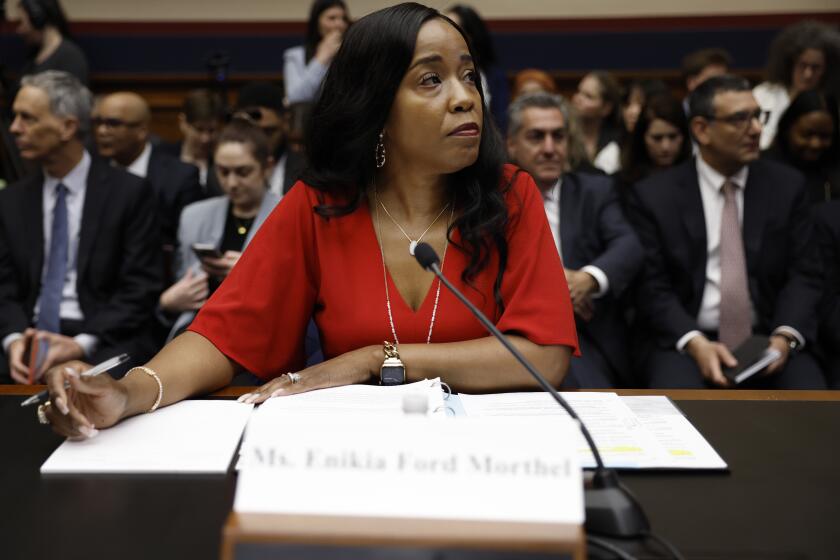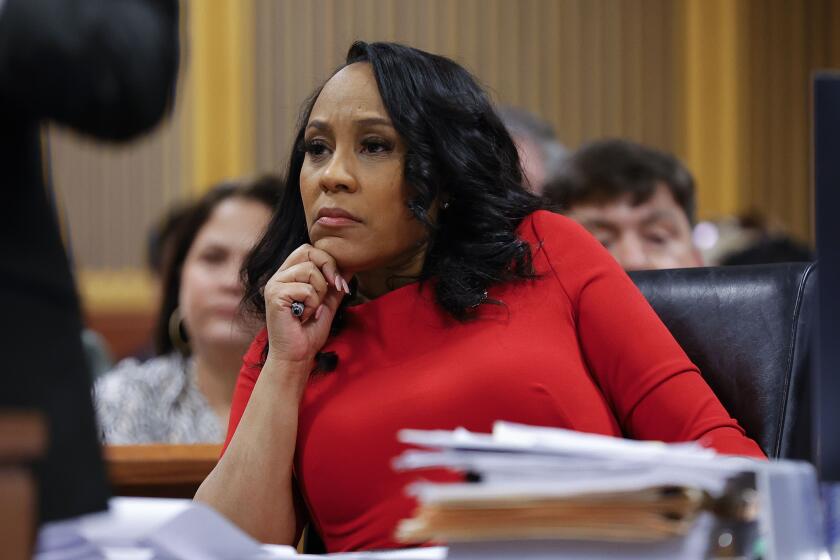Beholden to None, Justices Often Cut Their Own Paths : Court: We do a lousy job of predicting how a justice will vote. So leave political questions of the day out of the process.
The main news these last few days has not been about turbulence on Wall Street. Nor has it focused on the budget deficit or freedom in Eastern Europe.
The leading stories most often have concerned the resignation of Justice William J. Brennan Jr. and President Bush’s nomination of David Souter to fill the Supreme Court vacancy. Liberals are wary of Souter, a federal judge and a former New Hampshire Supreme Court justice, for he is expected to be a staunch conservative like his friend and supporter, White House Chief of Staff John H. Sununu. Conservatives hope that the liberals are right this time.
Supreme Court appointments were not always such newsworthy events. In grade school we learned that President John Adams appointed John Marshall to be our most famous chief justice. We weren’t told that Marshall was Adams’ third choice--the first two declined the honor. Even earlier this century, Supreme Court appointments were not the focal point of attention as they are now. On Sept. 4, 1922, Justice John Clarke resigned. The next day, President Warren Harding nominated George Sutherland to succeed him. The Senate confirmed him later that same day!
The Supreme Court now has become a much more important political institution and so we tend to treat each new appointment as something like a political campaign. How will the new justice vote on the abortion issue, on the rules governing police seizure of evidence, on death penalty cases, on aid to parochial schools, on flag burning?
We should put things in a better perspective. We should expect Souter to be more conservative than Brennan. But that’s not too hard to do, for Brennan was one of the most activist justices in our history. Other than that, history shows that Presidents, senators and the general public have a remarkably poor batting average in predicting how Supreme Court nominees are going to vote. Dwight D. Eisenhower appointed the liberal Brennan, while John F. Kennedy appointed the conservative Justice Byron White.
One reason why accurate predictions are so difficult is that the newly confirmed justice has lifetime tenure and salary protection, beholden to no one. History will be the final judge. That tends to make a man or woman an independent thinker. Perhaps that’s why Hugo Black, the political crony of F.D.R. and a former member of the Ku Klux Klan, surprised a lot of people with his strong rulings in favor of civil rights.
Another reason why we predict so poorly is that the justices do not own the law. They are merely its custodians. Justices don’t vote on an issue the way legislators do--a mere show of hands. The justices are supposed to reason from precedent and not be simply seismographs, registering public opinion. And the justices usually act the way they’re supposed to act. That’s why there was no judicial revolution when Chief Justice Warren E. Burger replaced Earl Warren. Some cases were no doubt decided differently than Warren would have decided them, but the law changes in degrees, not in upheavals. To the extent that time and experience shows some of the Supreme Court cases to have been poorly reasoned, to the extent that the cases are like judicial bricks made without straw, those cases will eventually be changed. Bad cases do not survive.
Finally, we should realize that we do not choose a new justice for today or tomorrow or even for next year. At 50, Souter is the same age Brennan was when he was appointed in 1956. If Souter’s tenure on the court is as long, he will be deciding cases in the year 2024. We do not know what the major judicial questions will be five or 10 or 34 years from now. Even less do we know what the liberal or conservative answers to those questions will be.
If we realize that we are investing for the long term, we should worry less about how a nominee might vote on a particular issue (and our ability accurately to predict that vote is poor anyway), and concern ourselves more with what we think of the nominee’s integrity, intellectual ability and good judgment.
More to Read
Get the L.A. Times Politics newsletter
Deeply reported insights into legislation, politics and policy from Sacramento, Washington and beyond. In your inbox three times per week.
You may occasionally receive promotional content from the Los Angeles Times.






